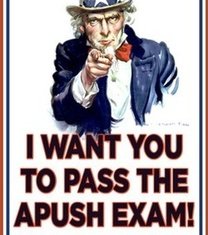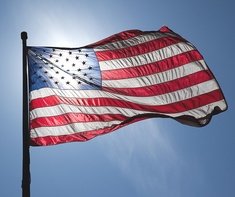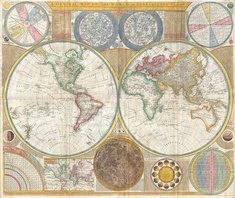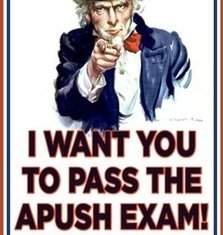|
Hint
|
Answer
|
|
A system of government-assisted economic development embraced by Republican state legislators in the Northeast
|
neomercantilism
|
|
The Second National Bank, trying to dampen land speculation and inflation, called loans, raised interest rates, and received the blame for this.
|
panic of 1819
|
|
Broad system of state mercantilism that included legislative support for road and canal companies, the legislatures passed laws to improve trade and force the sale of privately owned land along road/water way routes.
|
commonwealth system
|
|
Canal in New York State. Runs from the Hudson River to Lake Erie, connected the Great Lakes with the Atlantic Ocean. It cut transport cost by about 90%. It gave a massive population surge in western New York, and opened region further west to settlement.
|
erie canal
|
|
Eighteenth- and nineteenth-century transformation from a disaggregated, subsistence economy to a national commercial and industrial network.
|
market revolution
|
|
a series of nineteenth century innovations including turnpikes, steamboats, canals, and railroads that linked local and regional markets, creating a national economy.
|
transportation revolution
|
|
A burst of major inventions and economic expansion based on water & steam power and machine technology that transformed certain industries
|
industrial revolution
|
|
Textile factory system that employed mainly young women (15-35) from New England farms
|
waltham-lowell system
|
|
The formal process by which a slave owner can give his slaves their legal freedom.
|
manumission
|
|
The domestic slave trade with routes along the Atlantic coast that sent thousands of slaves to Sugar plantations in Louisiana and cotton plantations in the Mississippi Valley.
|
coastal trade
|
|
The slave trade system in the interior of the country that fed slaves to the Cotton South.
|
inland system
|
|
A system of bondage in which a slave has the legal status of property and so can be bought and sold.
|
chattel principle
|
|
Slaveholders saw themselves as guardians of a familial relationship between masters and slaves given to them by fate and heritage
|
paternalism
|
|
Cutting, boring, and drilling machines used to produce standardized metal parts
|
machine tools
|
|
An ideology that celebrated small scale producers such as men and women who owned their own shops or farms; it defined the ideal republican society as one constituted by, and dedicated to the welfare of, independent workers and citizens.
|
artisan republicanism
|
|
Ideology of slave owners who considered themselves committed to the welfare of their slaves.
|
ideology of benevolence
|
|
Organization of workers that began during the Industrial Revolution to bargain with employers over wages, hours, benefits, and control of the workplace
|
unions
|
|
Belief that the price of a product should be determined by the amount of work taken to make that product, and that most of that price should go towards the person who made it
|
labor theory of value
|
|
A system of work discipline used on southern cotton plantations in the mid-19th century in which white overseers or black drivers supervised gangs of enslaved laborers to achieve greater productivity.
|
gang-labor system
|
|
Ideal that celebrated men who rose to wealth or social prominence from humble origins through self-discipline, hard work, and temperate habits
|
self-made man
|
|
Economic group of prosperous farmers, artisans, and traders; its rise reflected a dramatic rise increase in prosperity
|
middle class
|
|
First American millionaire - made his money off fur trading
|
john jacob astor
|
|
Inventor of the telegraph
|
samuel morse
|
|
Considered the father of American industrial revolution because he brought British textile technology to the US.
|
samuel slater
|
|
Toured the British textile mills in 1810. Made sketches of what he observed. Returned to America and improved Slater's cotton spinning machine.
|
francis lowell
|
|
Inventor of the cotton gin
|
eli whitney
|
|
Inventor of the mechanical reaper
|
cyrus mccormack
|
|
Prominent Philadelphia family. "Mechanics" invent a series of tools/machines that improve products. Establishes Franklin institute.
|
sellars family
|
|
State elitists who were allowed to vote due to property requirements. Over a couple of decades, they began to lose their dominance as the franchise was extended to more and more people.
|
notables
|
|
A highly organized group of insiders that directs a political party.
|
political machine
|
|
Gave public offices to political supporters of the campaign.
|
spoils system
|
|
An organization within a party that dictated the official position of the party on legislative issues.
|
caucus
|
|
The idea that the primary role of American women was to instill a sense of patriotic duty and republican virtue in their children and mold them into exemplary citizens
|
republican motherhood
|
|
Idea of transporting freed blacks back to Africa, The organization established Liberia, a West-African settlement intended as a haven for emancipated slaves.
|
american colonization society
|
|
Missouri entered the Union as a slave state and Maine as a free state, preserving a balance in the Senate between North and South.
|
missouri compromise
|
|
Created a high tariff (import tax) to support internal improvements such as road-building. It was to allow the US to grow and prosper by themselves. Led by Henry Clay.
|
american system
|
|
The program for building roads, canals, bridges, and railroads in and between the states.
|
internal improvements
|
|
Henry Clay was the Speaker of the House during the election of 1824, and he convinced Congress to elect John Quincy Adams over Andrew Jackson as no candidate had a majority. Adams then made Clay his Secretary of State.
|
corrupt bargain
|
|
Raised the tariff on imported manufactured goods. Protected the North, but harmed the South. South claimed it was discriminatory and unconstitutional.
|
tariff of abominations
|
|
South Carolina tried to nullify the Tariff of Abominations. Jackson responded to this by amassing troops on their borders.
|
nullification crisis
|
|
An interpretation of the Constitution that exalts the sovereignty of the states and circumscribes the authority of the national government.
|
states rights
|
|
Issued by Hamilton, it was jointly owned by private stockholders and the national government.
|
first bank of the us
|
|
It held federal tax receipts and regulated the amount of money circulating in the economy. Unpopular among western land speculators and farmers, especially after the Panic of 1819.
|
second bank of the us
|
|
Authorized Andrew Jackson to negotiate land-exchange treaties with tribes living east of the Mississippi. The treaties acted under this act's provisions paved the way for the emigration of natives.
|
indian removal act
|
|
Forced removal of the Cherokees to Oklahoma.
|
trail of tears
|
|
The political ideology of individual liberty, private property, a competitive market economy, free trade, and limited government.
|
classical liberalism
|
|
|
Hint
|
Answer
|
|
This political party opposed Jackson's strong-armed leadership style and policies. The party promoted protective tariffs, federal funding for internal improvements, and other measures that strengthened the central government.
|
whigs
|
|
Crop failures, European financial troubles, Specie Circular 1836 (federal gov. action to dampen inflation brought by land speculation after the closing of the Second National Bank) all led to this.
|
panic of 1837
|
|
He was a democrat but was swayed by his adoptive Whig Party. He signed a law to end the independent treasury but he vetoed attempts to create a Fiscal Bank.
|
john tyler
|
|
Eighth president of the United States who was a key organizer of the Democratic Party, a dominant figure in the Second Party System, and a key figure in building the structure for Jacksonian Democracy.
|
martin van buren
|
|
As president he opposed the Bank of America, objected to the right of individual states to nullify disagreeable federal laws, and increased the presidential powers.
|
andrew jackson
|
|
Asserts rights of humanity should not be confined to men, wrote A Vindication of the Rights of Woman
|
mary wollstonecraft
|
|
Began his political career as a nationalist and an advocate of protective tariffs. Later he became an advocate of free trade, state rights, limited government and nullification.
|
john c calhoun
|
|
A belief in freedom of Americans from traditional constraints
|
individualism
|
|
Religious revivals starting in 1801, based on Methodism and Baptism. Religious philosophy of salvation through good deeds and tolerance for all Protestant sects.
|
second great awakening
|
|
Campaign of moral and institutional reforms inspired by Christian ideals and endorsed my upper middle class in the 1820s. Ministers insisted people who experienced saving grace should provide moral guidance and charity to the less fortunate.
|
benevolent empire
|
|
Artistic movement of the 19th century focusing on emotion and nature. Prominent American Romantics included Hawthorne, Poe, and Melville.
|
romanticism
|
|
An intellectual movement in the 1800's that posited the importance of an ideal world of mystical knowledge and harmony beyond the immediate grasp of the senses.
|
american renaissance
|
A philosophical and literary movement of the 1800s that emphasized living a simple life and celebrated the truth found in nature and in personal emotion and imagination |
transcendentalism
|
|
An attempt by cooperative communities to improve life in the face of increasing industrialism. Groups practiced social experiments that generally saw little success due to their radicalism.
|
utopias
|
|
The belief that there could be a utopian society where people could share together to have a better lifestyle.
|
fourierism
|
|
Church of Jesus Christ of Latter-Day Saints; group's beliefs criticized for teaching and practicing polygamy
|
mormons
|
|
The practice of men taking multiple wives, which Mormon prophet Joseph Smith argued was biblically sanctioned and divinely ordained as a family system.
|
plural marriage
|
|
The practice of being in a marital or sexual relationship with multiple people at the same time
|
polygamy
|
|
Sensational and popular urban newspapers that built large circulations by reporting crime and scandals.
|
penny papers
|
|
Popular theatrical entertainment begun around 1830, in which white actors in blackface presented comix routines that combined racist caricature and social criticism.
|
minstrel shows
|
|
A movement to end slavery
|
abolitionism
|
|
Abolitionist society founded by William Lloyd Garrison.
|
american anti-slavery society
|
|
A system of routes along which runaway slaves were helped to escape to Canada or to safe areas in the free states
|
underground railroad
|
|
A procedure in the House of Representatives from 1836 to 1844 by which antislavery petitions were automatically tabled when they were received so that they could not become the subject of debate.
|
gag rule
|
|
An antislavery political party that ran its first presidential candidate in 1844, controversially challenging both the Democrats and Whigs.
|
liberty party
|
|
Utopian society that believed in polygamy and communal ownership of property and of raising children
|
oneida community
|
|
An organization led by middle-class Christian women who viewed prostitutes as victims of male lust and sought to expose their male customers while "rescuing" sex workers and encouraging them to pursue respectable trades.
|
female moral reform society
|
|
Women of all ages, and some men discussed the rights and conditions of women. They wrote the Declaration of Sentiments
|
seneca falls convention
|
|
Made the "anxious bench" for sinners to pray and was against slavery and alcohol.
|
charles finney
|
|
Essayist and poet who pioneered Transcendentalism
|
ralph waldo emerson
|
|
A transcendentalist who wrote Walden and On Civil Disobedience
|
henry david thoreau
|
|
|
margaret fuller
|
|
He was an important part for the buildup of American literature and breaking the traditional rhyme method in writing poetry. Wrote Leaves of Grass
|
walt whitman
|
|
|
mother ann lee
|
|
This man announced that he had received a special message from God in a book "written upon golden plates" buried in a hillside. His message placed America at the center of Christian history.
|
joseph smith
|
|
A black abolitionist who called for the immediate emancipation of slaves. wrote pamphlet on black pride.
|
david walker
|
|
African American slave who led a slave rebellion in Virginia on August 21, 1831 that resulted in the death of 60 whites.
|
nat turner
|
|
Abolitionist. Published "The Liberator." Helped found the American Anti-Slavery Society.
|
william lloyd garrison
|
|
Sisters from South Carolina who began their public careers in the abolitionist movement. Male abolitionists objected to their prominence in the movement, and the sisters turned to advocacy of women's rights.
|
grimke sisters
|
|
Argued for the more human treatment of the insane; reformed prisons.
|
dorothea dix
|
|
An abolitionist and supporter of temperance, she joined the growing women's suffrage movement in the 1850s.
|
susan b anthony
|
|
A pioneer in the women's suffrage movement, she helped organize the first women's rights convention in Seneca Falls, New York in 1848.
|
elizabeth cady stanton
|
|
A society in which the institution of slavery affects all aspects of life.
|
slave society
|
|
The Old South gentry that built impressive mansions, adopted the manners and values of the English landed gentry, and feared federal government interference with their slave property.
|
republican aristocracy
|
|
The land west of the Missouri River and east of the Rocky Mountains. The landscape had no trees, little rainfall and tough prairie sod.
|
great american desert
|
|
|
Hint
|
Answer
|
|
The 1836 defeat by the Mexican army of the Texan garrison defending this fort in San Antonio.
|
alamo
|
|
It emphasized the evangelical message of emotional conversion, ritual baptism, communal spirituality, and the idea that blacks were "children of God" and should be treated accordingly.
|
black protestantism
|
|
A system of labor common in the rice-growing regions of South Carolina in which a slave was assigned a daily task to complete and allowed to do as he wished upon its completion.
|
task system
|
|
The 19th-century doctrine or belief that the expansion of the US throughout the American continents was both justified and inevitable.
|
manifest destiny
|
|
An emigrant route that originally led from Independence, Missouri, to the Willamette Valley in Oregon, a distance of some 2,000 miles.
|
oregon trail
|
|
The elite Mexican ranchers in the province of California.
|
californios
|
|
Democratic candidate James K. Polk's slogan in the election of 1844 calling for American sovereignty over the entire Oregon Country.
|
54-40 or fight
|
|
United States politician and military leader who fought to gain independence for Texas from Mexico and to make it a part of the United States
|
sam houston
|
|
American empresario known as the Father of Texas. He led the second, but first legally and ultimately successful colonization of the region.
|
stephen austin
|
|
A general that seized power of Mexico as a dictator, he increased the powers of the national government at the expense of the state governments
|
santa anna
|
|
President who favored American expansion, especially advocating the annexation of Texas, California, and Oregon. He was a friend and follower of Andrew Jackson.
|
james k polk
|
|
Under orders of Polk, in the summer of 1845 he led a small army to Texas to protect the new state against possible Mexican invasion.
|
zachary taylor
|
|
He helped to overthrow the Mexican rule in 1846 by collaborating with Americans who had tried to raise the banner of the California Bear Republic.
|
john fremont
|
|
Lands taken in the Mexican-American War, including Texas, New Mexico, and California
|
mexican cession
|
|
Whig politicians who opposed the Mexican-American War on moral grounds, maintaining that the purpose of the war was to expand and perpetuate control of the national government.
|
conscience whigs
|
|
The 1846 proposal by Representative David Wilmot of Pennsylvania to ban slavery in territory acquired from the Mexican-American War
|
wilmot proviso
|
|
a political movement formed in 1848 to oppose the extension of slavery Westward, into U.S. territories.
|
free soil movement
|
|
(1) California was admitted to the Union as a free state; (2) the remainder of the Mexican cession was divided into the two territories of New Mexico and Utah and organized without mention of slavery; (3) the claim of Texas to a portion of New Mexico was satisfied by a payment of $10 million; (4) Fugitive Slave Act was passed to apprehend runaway slaves and return them to their masters; and (5) the buying and selling of slaves was abolished in the District of Columbia.
|
compromise of 1850
|
|
Laws enacted in many northern states that guaranteed to all residents, including alleged fugitives, the right to a jury trial.
|
personal liberty laws
|
|
Treaty where Matthew Perry opened up Japan to American trade
|
treaty of kanagawa
|
|
Private paramilitary campaigns, mounted particularly by southern proslavery advocates in the 1850s, to seize additional territory in the Caribean or Latin America in order to establish control by U.S.-born leaders, with an expectation of eventual annexation by the United States.
|
filibustering
|
|
An 1854 manifesto that urged President Franklin Pierce to seize the slave-owning province of Cuba from Spain.
|
ostend manifesto
|
|
An anti-foreign feeling that arose in the 1840's and 1850's in response to the influx of Irish and German Catholics.
|
nativism
|
|
the tendency for immigrants to relocate near friends or relatives from one's original country
|
chain migration
|
|
Influential third party of the 1840s; it opposed immigrants, especially Catholics, and supported temperance, a waiting period of citizenship, and literacy tests.
|
know nothing party
|
|
A controversial 1854 law that divided Indian Territory into Kansas and Nebraska, repealed the Missouri Compromise, and left the new territories to decide the issue of slavery on the basis of popular sovereignty.
|
kansas-nebraska act
|
|
Sued unsuccessfully for his freedom because he had been taken to live in territories where slavery was illegal.
|
dred scott
|
|
The Confederates' belief during the Civil War that their cotton was so important to the British and French economies that those governments would recognize the South as an independent nation and supply it with loans and arms.
|
king cotton
|
|
A legal writ forcing government authorities to justify their arrest and detention of an individual.
|
habeas corpus
|
|
Slaves who fled plantations and sought protection behind Union lines during the Civil War.
|
contrabands
|
|
Supported the abolition of slavery and demanding reconstruction policy during the war and after. Believed South should be punished
|
radical republicans
|
|
Issued by Lincoln in 1862- it declared that all slaves in the Confederate states would be free.
|
emancipation proclamation
|
|
Paper money issued by the U.S. Treasury during the Civil War to finance the war effort.
|
greenbacks
|
|
Drafting men to serve in the army
|
conscription
|
|
Violent protests against military conscription that occurred in the North, most dramatically in New York City
|
draft riots
|
|
An organization that supported the Union war effort through professional and volunteer medical aid.
|
us sanitary commission
|
|
A speech given by Abraham Lincoln after the Battle of Gettysburg, in which he praised the bravery of Union soldiers and renewed his commitment to winning the Civil War
|
gettysburg address
|
|
The philosophy and tactics used by William Tecumseh Sherman by which he treated civilians as combatants.
|
hard war
|
|
A derogatory word for interracial sexual relationships coined by Democrats in the 1864 election
|
miscegenation
|
|
Although his foremost goal in the beginning was the preservation of the Union, by 1863 he had become convinced that it could be preserved only by the destruction of slavery, which he abhorred on moral grounds. He did a masterful job of articulating the moral goals of the war and the American experiment in government.
|
abraham lincoln
|
|
President of the Confederate states 1861-1865. During the Civil War, he was criticized by Southerners for his conduct during the war and for failing to gain foreign aid and recognition for the Confederacy.
|
jefferson davis
|
|
A general for northern command of the Army of the Potomac in 1861
|
george mcclelland
|
|
General who led the Confederate army. His main plan towards the end of the Civil War was to wait for a new president to come to office to make peace.
|
robert e lee
|
|
Union General who replaced McClellan and realized that war would have a huge amount of casualties on both sides.
|
ulysses s grant
|
|
General who led a destructive conquest of the Confederacy and seized Atlanta.
|
william tecumseh sherman
|
|







